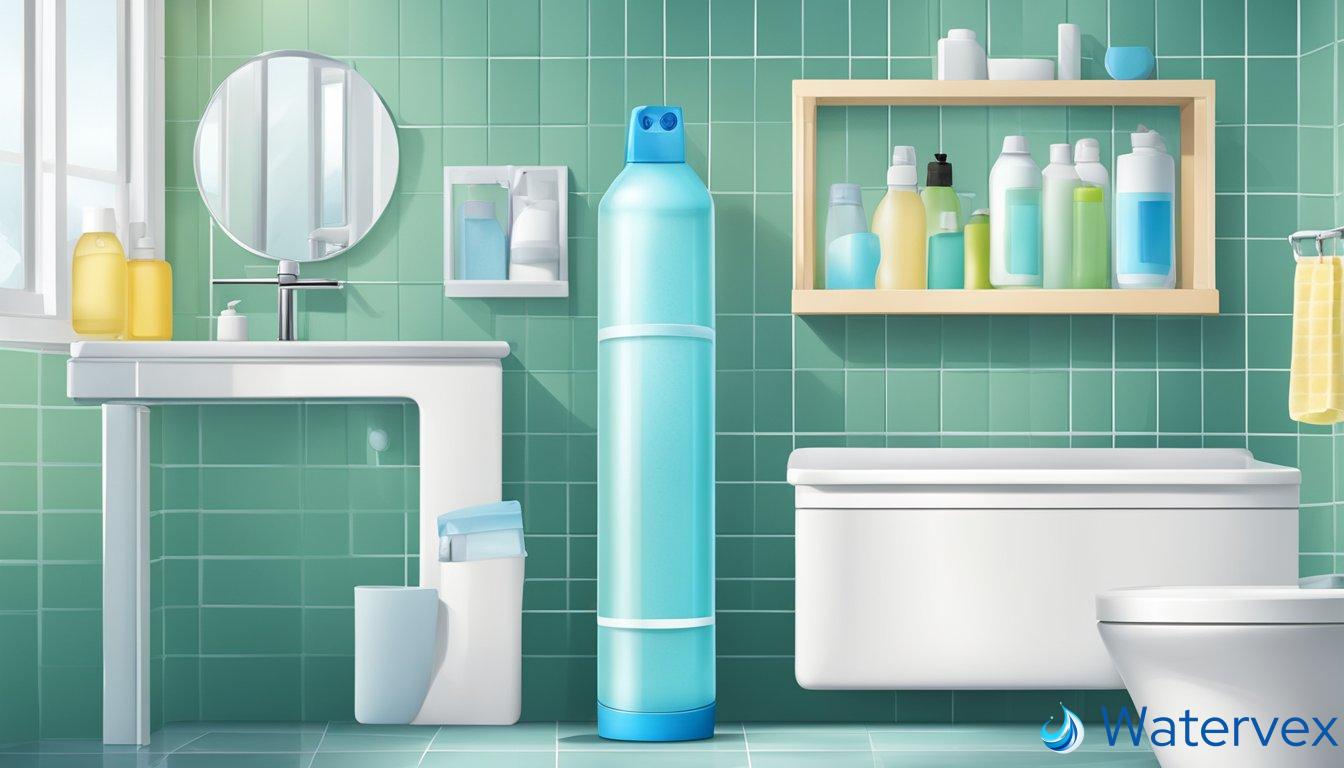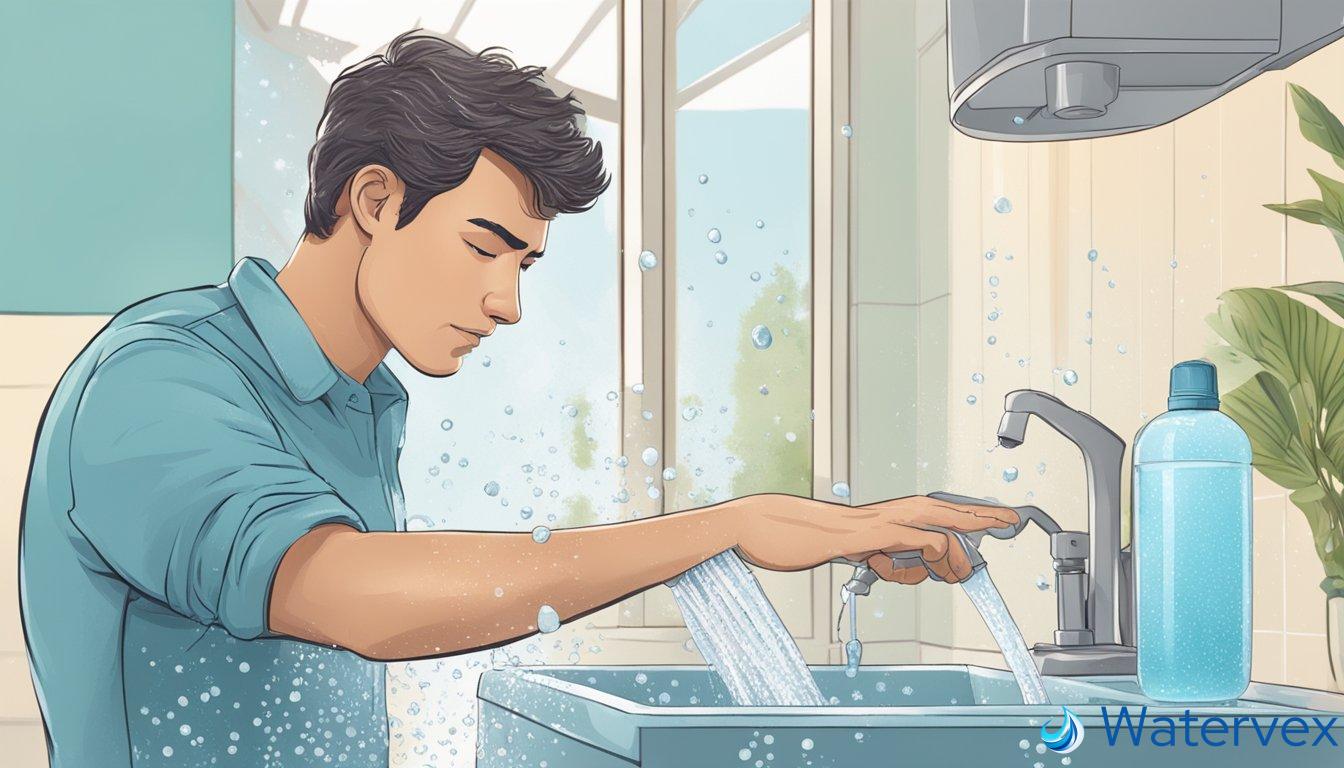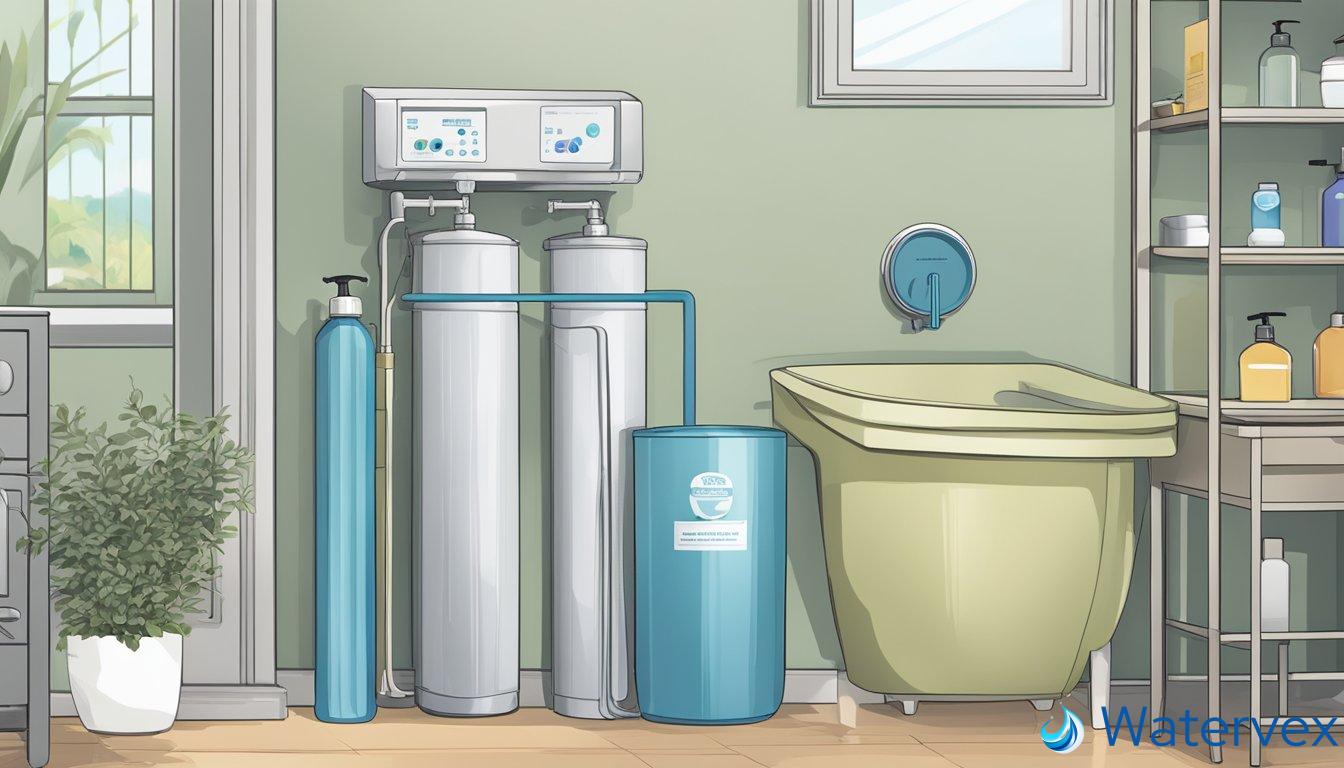When investigating the link between water softeners and dandruff, it’s important to consider the effects of water quality on scalp health. Some people notice an increase in flaking and itchiness after installing a water softener, leading to concerns about cause and effect. Water softeners replace minerals such as calcium and magnesium with sodium, which can alter the natural balance of your scalp’s moisture levels. If you’re experiencing new or worsening symptoms of dandruff after a water softener installation, it could be related to how your scalp and hair react to these changes.

Dandruff involves the shedding of excessive skin cells from the scalp, often accompanied by irritation. Several factors contribute to dandruff, including skin conditions like seborrheic dermatitis or fungal growth, but environmental factors like the water you use for washing can also play a role. It’s essential to determine if it’s the water softener causing dry skin on your scalp, or if there might be other underlying causes. Before jumping to conclusions, it’s worth exploring a range of factors in your environment and health that could influence the condition of your scalp.
Key Takeaways
- Water softeners can change scalp moisture balance, potentially affecting dandruff.
- Several variables contribute to dandruff, including but not limited to water quality.
- Investigating environmental and personal health factors is important for addressing scalp issues.
Understanding Water Softeners and Scalp Health
When considering the impact of water softeners on your scalp, it’s essential to examine how they interact with the minerals in your water and hence affect your scalp health.
Can Water Softeners Lead to Dandruff Development?
Many people are concerned that water softeners might exacerbate or lead to dandruff, as soft water does remove minerals like calcium and magnesium from your water. However, the absence of these minerals is unlikely to cause dandruff directly. In fact, softened water can actually be beneficial for your scalp by reducing hard water deposits that may contribute to scalp irritation and dryness. The smooth feeling of soft water might seem like it’s not rinsing away products completely, but it’s actually efficient in doing so, which can avoid product buildup that can lead to dandruff.
Is There a Link Between Softened Water and Scalp Health?
While softening water may not lead to dandruff, there is certainly a connection with scalp health. Soft water might help you avoid an itchy scalp since it’s more efficient at washing away shampoo and conditioner. This means there’s less residue to irritate your skin or contribute to flakiness. In addition, soft water helps maintain a balanced pH level on your scalp, which can keep your hair healthy and hydrated. Those with sensitive skin may notice less dryness and irritation after installing a water softener, suggesting a positive impact on overall scalp and hair health.
Identifying and Addressing Scalp and Hair Issues

If you’re experiencing scalp and hair problems and suspect your water softener might be the culprit, it’s crucial to pinpoint the exact issues and take precise steps towards effective treatment.
What Steps Can You Take if You Suspect Your Water Softener Affects Your Hair?
Check for Symptoms of Dandruff: Look for white flakes, itchiness, and scalp irritation, which can be exacerbated by certain types of water.
Switch Your Shampoo: Using a dandruff shampoo specifically formulated to fight the yeast responsible for dandruff might help. If your hair feels heavy or looks dull, try a clarifying shampoo to remove any mineral buildup.
Enhance Moisturizing: After clarifying, use a moisturizing conditioner or a leave-in conditioner to replenish any lost moisture.
Try Home Remedies: A vinegar rinse or apple cider vinegar treatment can balance pH levels on your scalp. Meanwhile, coconut oil and lemon juice are touted for their natural soothing properties.
Consult a Professional: If self-care doesn’t help, a dermatologist or healthcare provider can diagnose your condition and may prescribe specialized treatments.
Remember, while identifying the relationship between your water softener and hair health, consider these targeted steps and carefully observe any changes in your scalp and hair condition.
Preventative Measures and Healthy Practices

When considering if a water softener can contribute to dandruff, it’s important to focus on hair care and skin care routines that address water quality. Hard water, which is high in calcium and magnesium, can leave a residue on hair and scalp that may contribute to dandruff. If you have a water softener, which typically replaces calcium and magnesium ions with sodium or potassium ions, being mindful of how it affects your scalp health is key.
Lukewarm water: Always rinse your hair with lukewarm water. Hot water can strip your scalp of its natural oils (sebum), increasing the risk of dryness and flaking.
Gentle shampoo: Use a gentle shampoo designed for sensitive skin or treated water. Look for products that specifically mention compatibility with soft water—these can help to effectively remove any residue without irritating the scalp.
| Scalp Type | Recommended Product |
|---|---|
| Dry & Sensitive | Hydrating or Moisturizing Shampoo |
| Oily | Balanced or Clarifying Shampoo |
Moisturize: After washing, apply a hair mask or conditioner to moisturize your hair and scalp, especially if you live in an area with soft water. This can help to replenish moisture and protect against flaking.
Excess Oil Management: If your scalp tends to produce excess oil, choose hair care products that regulate oil production without overly drying the skin. The sebaceous glands produce sebum, natural oil that can accumulate and exacerbate dandruff if not managed properly.
Showering Frequency: Consider reducing the frequency of showering if your scalp becomes too dry. Daily washing can remove too much sebum, leading to dryness and flakiness.
By adjusting your hair and skin care practices to account for the effects of water softening, you can help to prevent dandruff. Remember, the balance of scalp moisture and cleanliness is crucial, regardless of your water’s mineral content.

